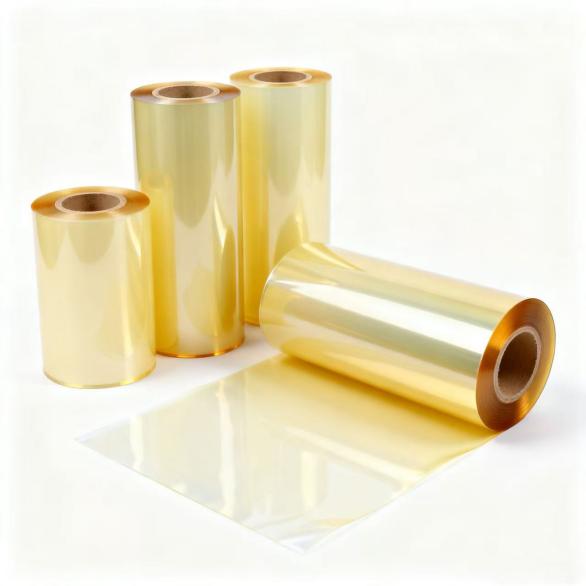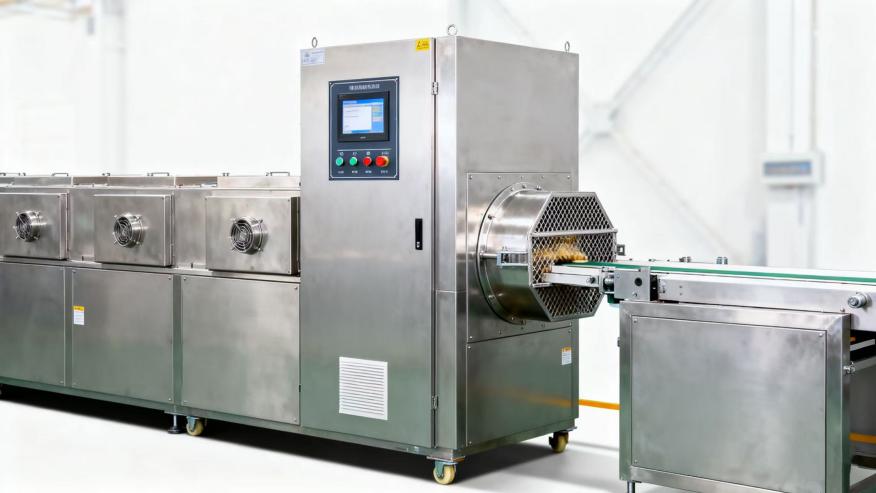Corona-resistant polyimide film is a high-performance insulating material that has emerged in recent years. It exhibits outstanding corona resistance; while standard polyimide film typically endures only tens of hours under high-frequency pulsed voltage, modified corona-resistant polyimide film can withstand over 300 hours under identical test conditions. It maintains long-term stability across a broad temperature range from -269oC to 400oC, with short-term tolerance extending even higher, making it suitable for extreme thermal environments. Its tensile strength typically exceeds 150 MPa, while elongation at break can reach over 15%, ensuring resistance to cracking during complex processing such as winding and lamination. Furthermore, the excellent dielectric properties of modified corona-resistant polyimide film ensure minimal energy loss in high-frequency electric fields.

At present, corona-resistant polyimide films have transitioned from laboratory research to industrial applications, primarily tailored for high-frequency, high-voltage electrical equipment. Scaled demand has emerged across three major sectors: new energy, rail transit, and specialized equipment.
Wind turbines operate in harsh environments (low temperatures, high humidity, vibration) with significant voltage fluctuations. Corona-resistant films serve as inter-turn insulation and main insulation for stator windings. The use of PI/Al2O3 composite films extends motor lifespan from 15 to over 20 years. Power conversion systems (PCS) and large-scale lithium-ion battery storage cabinets endure high-frequency charge/discharge pulse voltages. Corona-resistant polyimide films serve as insulation spacers and winding insulation for power modules, reducing insulation failure risks under high-frequency conditions and ensuring stable energy storage system operation.
Traction motors in rail transit vehicles like high-speed trains and subways generate high-frequency pulse voltages during acceleration and braking, which can easily trigger corona discharge. Corona-resistant polyimide film, used for coil insulation in traction motors, withstands operating temperatures of 150~200oC and high-frequency electric fields. It has become the standard insulation material for traction motors in multiple renowned enterprises, extending overhaul cycles from 3 to 5 years.
Transformers in medical X-ray machines and industrial microwave equipment must withstand high-frequency, high-voltage conditions. Corona-resistant polyimide film, used for inter-winding insulation, resists severe corona erosion, ensuring imaging quality and operational stability. Additionally, equipment like radars and particle accelerators generate transient high-voltage pulses, necessitating multi-layer corona-resistant film materials as core insulation components.

Given current technological limitations and market demands, future research on corona-resistant polyimide films will focus on three key directions: performance optimization, cost reduction, and functional expansion. This will drive the material toward higher performance and broader applications. Current mainstream products exhibit corona resistance lifetimes of approximately 1000~2000 hours (at 10kV/mm). Future advancements require multi-component synergistic modification (e.g., nano-Al2O3 + graphene composites) to extend lifetimes beyond 5000 hours, meeting the longevity demands of large-scale wind power, nuclear power, and other long-life equipment. However, the high cost of nanoparticles like nano-Al2O3 necessitates developing low-cost nanoparticle preparation processes or utilizing industrial-grade recycled particles to reduce raw material expenses. Additionally, the current multi-layer film fabrication process involves multiple coating and drying steps, making it complex. Future development of“one-step co-extrusion”molding processes could shorten production cycles, lower processing costs, and promote material adoption in mid-to-low-end motors, home appliances, and similar applications.
For insulation needs in flexible electronics and wearable devices, ultra-thin, highly flexible corona-resistant polyimide films should be developed. By adjusting molecular chain structures and composite processes, the film's bending radius can be reduced to below 1 mm, meeting the folding and bending requirements of flexible devices. Finally, an integrated“corona-resistant + thermally conductive + flame-retardant” film will be developed for high-density heat dissipation applications like new energy vehicle motors and 5G base station power supplies. By incorporating particles such as boron nitride and magnesium hydroxide, the film's thermal conductivity will be enhanced from 0.15 W/(m·K) to over 1 W/(m·K) while achieving UL94 V-0 flame-retardant rating.
Through continuous breakthroughs in modification technologies, corona-resistant polyimide film has become a core insulating material for high-frequency, high-voltage electrical equipment, playing an irreplaceable role in new energy, rail transit, and other fields. Currently, corona-resistant polyimide film is evolving from single-function corona resistance toward high performance, low cost, and multifunctionality. Future efforts should deepen research into corona resistance mechanisms, overcome bottlenecks like interfacial compatibility and process costs, and advance the high-end and large-scale application of film materials to support the efficient and safe operation of electrical equipment.

Contact us to learn more about our advanced electronic chemicals and speciality polymer materials, and how they can enhance your production performances.